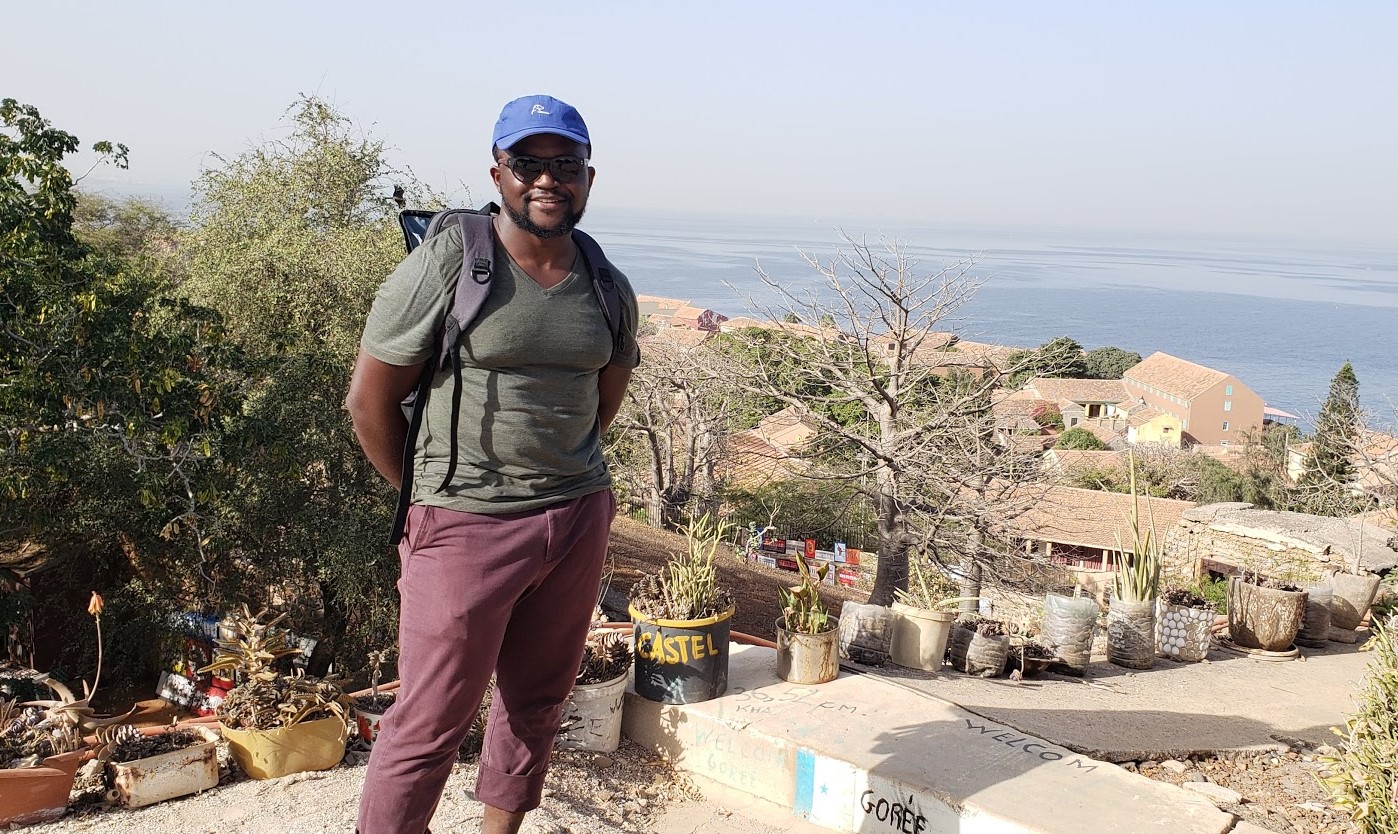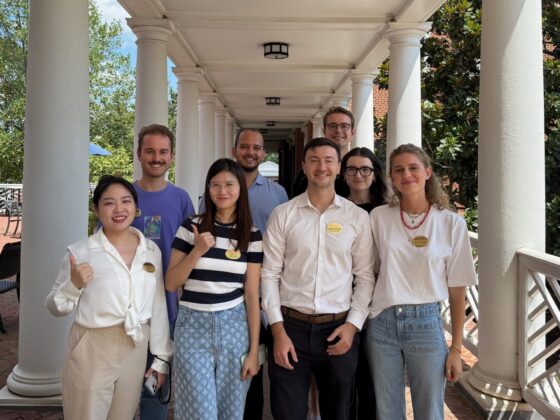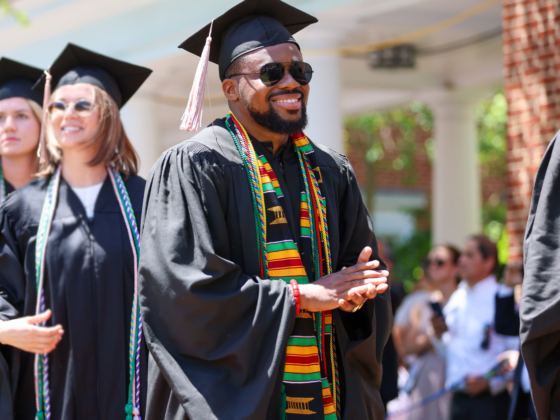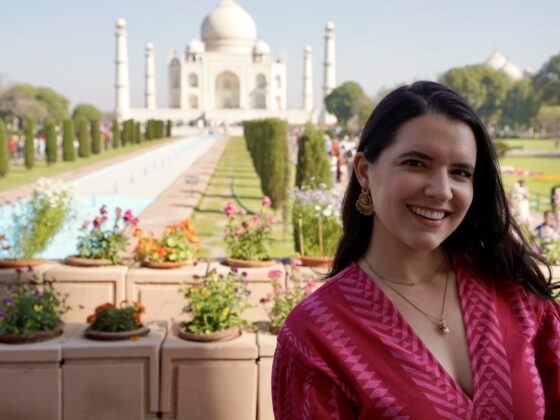Asong Lekeaka (Class of 2019) serves as president of the Darden African Business Organization (DABO). When considering business school programs, Asong, originally from Cameroon, looked for the global attitudes and global academic experiences each school offered, as well as whether the schools had an African association or business club for students. “I knew I would be active in that club wherever I went,” said Asong. “I looked for opportunities to bridge the school to the African continent.”
Asong took time to share more about his experiences at Darden as DABO president. In his own words:
How did you hear about Darden and why did you decide to attend the school?
I was working as a network engineer for AT&T when I felt ready for the next step in my career and started my business school search. My cousin, who was in business school at the time and with whom I shared similar interests and passions, spoke highly of Darden and connected me with a Cameroonian alum who told me more about the Darden experience. Soon thereafter, I visited Darden and fell in love.
It is a significant decision to leave your job to go back to school full-time for two years, so I wanted to be absolutely sure of my business school choice. I wanted it to be a learning experience and to feel better prepared to take on the world. When I experienced the Darden case method for the first time, I was awestruck. I knew that the entire Darden experience would be extremely useful for both personal and professional growth.
How did you first hear about DABO and why were you interested in joining? Why did you decide to run for president of DABO?
After moving to the U.S. from Cameroon when I was ten, I always knew my life would take me back home at some point, but I didn’t know how. Business school gave me the power to dream about what kind of impact I could have on the African continent in the short- and long-term. DABO provided the pathway to take immediate steps toward the short-term goal.
I decided to run for president of DABO because I found that there was great opportunity to increase the level of conversation around Africa at Darden. My main motivation to run was to bring Africa more into focus and into conversation.
What are some of the events that the DABO hosts throughout the year? Does DABO collaborate with other organizations on any events?
We showcase African cultures and identities through participating in the annual Global Food Festival as well as hosting academic and social events throughout the year. The highlight of our programming is Africa Week, which sparks great conversation on African business and culture. This year Africa Week will include a discussion on “Africa in the Global Context” featuring a Darden alum with over 20 years of work experience in Africa, as well as a session titled “Africa: Home of the Next Emerging Market” for student and staff panelists to share their professional perspectives and experiences of working on the continent.
DABO’s newest event was the inaugural student-led Ghana trek. We leveraged our peers from West Africa to arrange company visits in the private sector and with government officials. We also networked with alumni and prospective students from the region with support from Darden’s Career Development Center and Center for Global Initiatives.
DABO also tries to co-sponsor events with other student and affinity clubs at Darden, like Education Club, Entrepreneurship & Venture Capital, Adam Smith Society, Net Impact, Latin American Student Association and Darden South Asia Society. Currently we are working on a vision for an emerging market forum that would deepen the intersection among international affinity clubs.
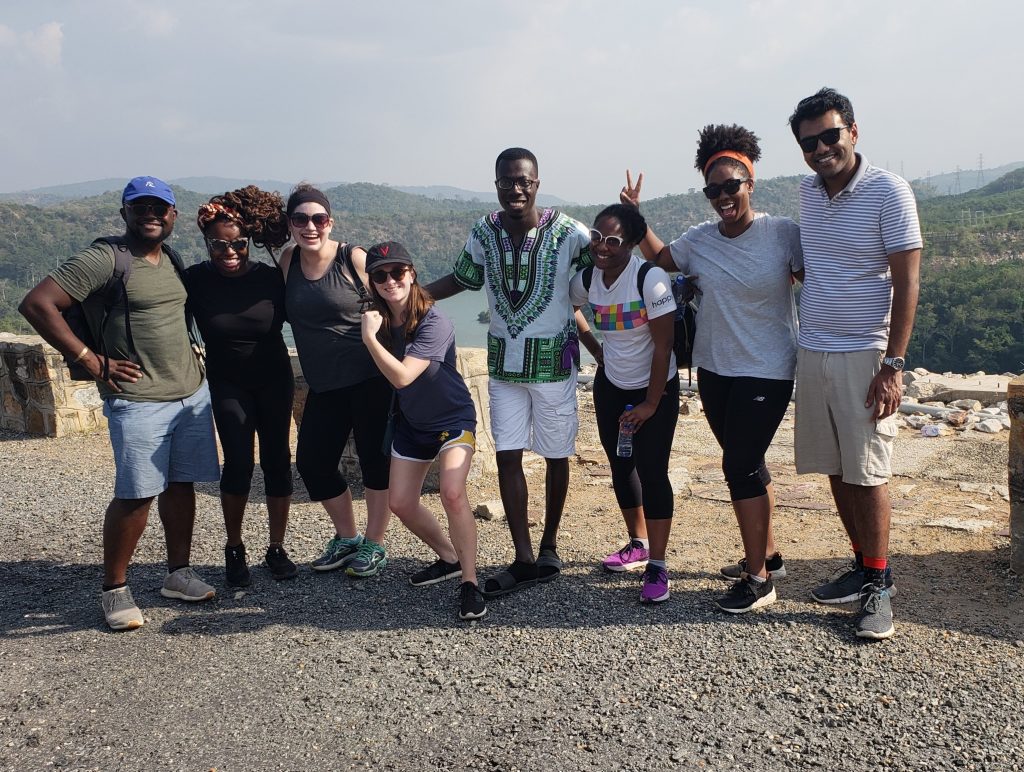
What was your vision for DABO as president? Where do you hope to see it go in the future?
My most present vision for leading DABO was to bring Africa into conversations more frequently, and realizing that vision meant having voices in the community that were willing to speak up. Another one of DABO’s goals for this year was to lead a trek to West Africa. For years, DABO envisioned leading a trek to Africa, and it finally came to fruition this past December. Having a student-led trek among peers presents a different perspective of Africa, especially when classmates learn and reflect with peers who are from that particular region. We chose to lead the trek to West Africa because we have a good representation of students and alumni from that region, and because West Africa proves to be increasingly important in African and global politics, yet is often underrepresented.
Across the organization, we hope that the Darden community realizes that issues that matter to Africa are issues that should matter to everyone. There are rich conversations around how business concepts like innovation, marketing and technology impact Africa; and, whenever we talk about any of these concepts, I believe we also need to address how this would play out in sub-Saharan Africa or on the continent. We cannot gloss over the voices and perspectives of over a billion people.
How has DABO impacted the way the Darden community understands African business and culture and why do you think it is important for Darden to have an organization like DABO?
As a community, we are better when we have more and diverse voices at the table – this is the critical role that affinity clubs play here at Darden. DABO takes seriously our responsibility to present the African perspective that bears equal weight in conversations about identity, culture and opportunity.
Africa is a diverse and dynamic space that should be engaged in a humanizing way. DABO, I believe, has done just that through sharing Darden Stories, hosting subject matter expert speakers and taking students to West Africa to experience the continent personally. I can’t measure the impact that DABO has had on the entire Darden community, but my hope is that we have pushed Africa more into the center of conversation through our engagement and programming.
What would you say to prospective students who may be interested in joining DABO?
DABO is open to everyone – we want it to be a welcoming environment where students can get a deeper perspective about the continent. It is a fun opportunity to learn about African culture and business and connect with African and non-African peers alike.

